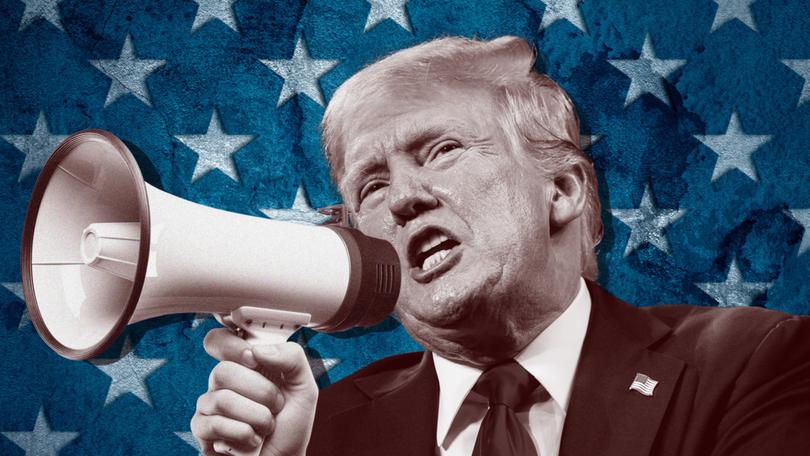MARK GONGLOFF: Trump 2.0 is bad for the climate but not hopeless
MARK GONGLOFF: In poll after poll, Americans say they care about climate change, democracy and women’s rights. And yet they have chosen to give ultimate political power to someone loudly opposed to them.

(Bloomberg Opinion) - In poll after poll, Americans say they care about climate change. But then again, they also say they care about democracy, women’s rights and other such ideals. And yet for the second time in three elections, they have chosen to give ultimate political power to someone loudly and diametrically opposed to them.
For the climate, the best we can hope is that the aftermath of the 2024 election will remain just short of catastrophic. The progress made by President Joe Biden is significant and in some key ways will be difficult to undo. The world’s transition from fossil fuels toward clean energy has a natural momentum that survived Donald Trump’s first term in office and will likely survive his second.
With a big enough dose of hopium, we might even choose to believe that Elon Musk - who has made much of his fortune running a company dependent on that energy transition — will be a moderating influence on a president who says wind turbines kill whales and cause cancer. But Musk isn’t even a moderating influence on himself most of the time, and Trump has repeatedly proved to be a poor candidate for moderation anyway.
Sign up to The Nightly's newsletters.
Get the first look at the digital newspaper, curated daily stories and breaking headlines delivered to your inbox.
By continuing you agree to our Terms and Privacy Policy.Far more likely is that an energy transition described again and again recently as moving too slowly to limit global heating to merely bad levels will receive little to no help from the government of the world’s largest fossil-fuel producer for at least the next four critical years.
A Trump administration will add 4 billion more tons of carbon pollution to the atmosphere than a second Biden term would have, according to a June analysis by the nonprofit Carbon Brief. That matches the combined annual emissions of the EU and Japan. The country’s goal of cutting emissions in half by 2030 is now a pipe dream.
Project 2025, the Heritage Foundation blueprint for a second Trump term, written by several former Trump officials, calls for overturning Biden’s Inflation Reduction Act, the most important climate legislation in history.
It calls for gutting regulation of power plants and auto emissions and widespread drilling for oil and natural gas. It would fill the federal government with climate-change deniers and fossil-fuel lobbyists. And it would remove the US - still one of the world’s biggest carbon polluters - from the global effort to minimize and adapt to environmental chaos.
Of course, we don’t need the Heritage Foundation to tell us what Trump would like to do in a second term; he did all of the above in his first. A big question now is the durability of the scaffolding Biden built in the four-year interregnum between the two, a period that in retrospect was clearly a precious reprieve.
As my Bloomberg Opinion colleague Liam Denning and I have written, Biden’s climate-related executive orders can be excised with the stroke of a pen. Trump-packed courts probably won’t stand in the way of gutting environmental regulations. Trump could shut down the flow of government loans to cleantech projects and make the Internal Revenue Service an obstacle to accessing tax benefits.
On the other hand, the US government isn’t the only player in this game. Local governments can still make a difference. On Tuesday, Washington voters kept the state’s cap-and-trade program alive. Columbus and Nashville approved mass-transit upgrades.
The rest of the world, including corporate America, recognizes the economic, social and public health benefits of building a cleaner future. Ironically, the man who called climate change a Chinese hoax could well hand leadership of the fight against global heating to China.
And as Denning has detailed, most of the IRA’s cleantech subsidies are going to Republican districts. GOP politicians have already made it clear they’d like to keep them. If Trump and Republicans in Congress choose to listen, that could keep billions of federal dollars flowing to solar, wind and battery installations, electric-vehicle projects and more. And global energy markets don’t just shift gears at the whim of US presidents.
But electrification and clean energy are only part of the equation for meeting the goal of the Paris Agreement to keep global heating well below 2 degrees Celsius above preindustrial averages. To be truly effective, the IRA’s carrots must be paired with sticks to discourage fossil-fuel use, including carbon pricing and ending implicit and explicit subsidies. Always politically tricky to wield even in the best of times, those will probably never see the light of day in a Trump regime.
The window to curb emissions and avoid the worst outcomes of global heating is closing rapidly. Trump’s government might be about to help slam it shut. It’s up to the Americans who claim to care about such things to join the rest of the world in doing everything they can to push in the other direction.
- - -
This column does not necessarily reflect the opinion of the editorial board or Bloomberg LP and its owners.
- - -
Mark Gongloff is a Bloomberg Opinion editor and columnist covering climate change.
Bloomberg Opinion
